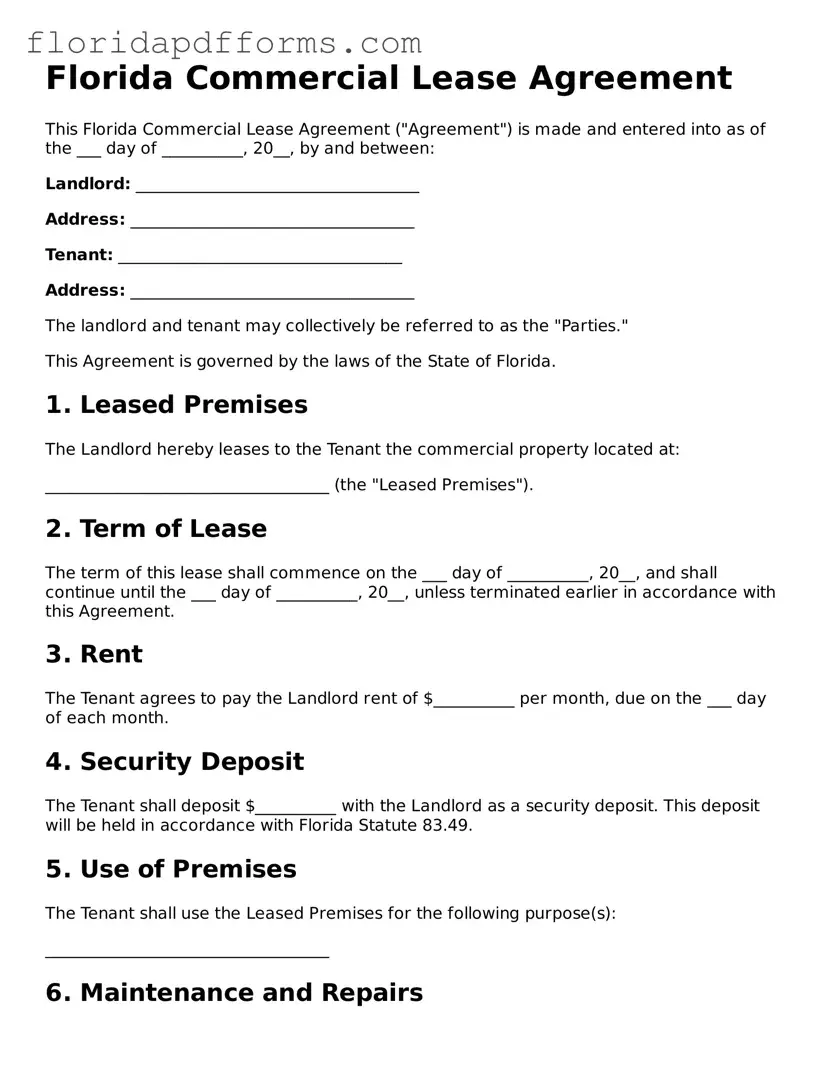Official Commercial Lease Agreement Template for Florida
A Florida Commercial Lease Agreement is a legally binding document that outlines the terms and conditions between a landlord and a tenant for renting commercial property in Florida. This agreement protects the rights of both parties and specifies details such as rental payments, lease duration, and property use. To ensure a smooth leasing process, consider filling out the form by clicking the button below.
Modify Commercial Lease Agreement Now

Official Commercial Lease Agreement Template for Florida
Modify Commercial Lease Agreement Now

Modify Commercial Lease Agreement Now
or
⇓ Commercial Lease Agreement File
Don’t stop halfway through your form
Finish your Commercial Lease Agreement online with quick edits and instant download.